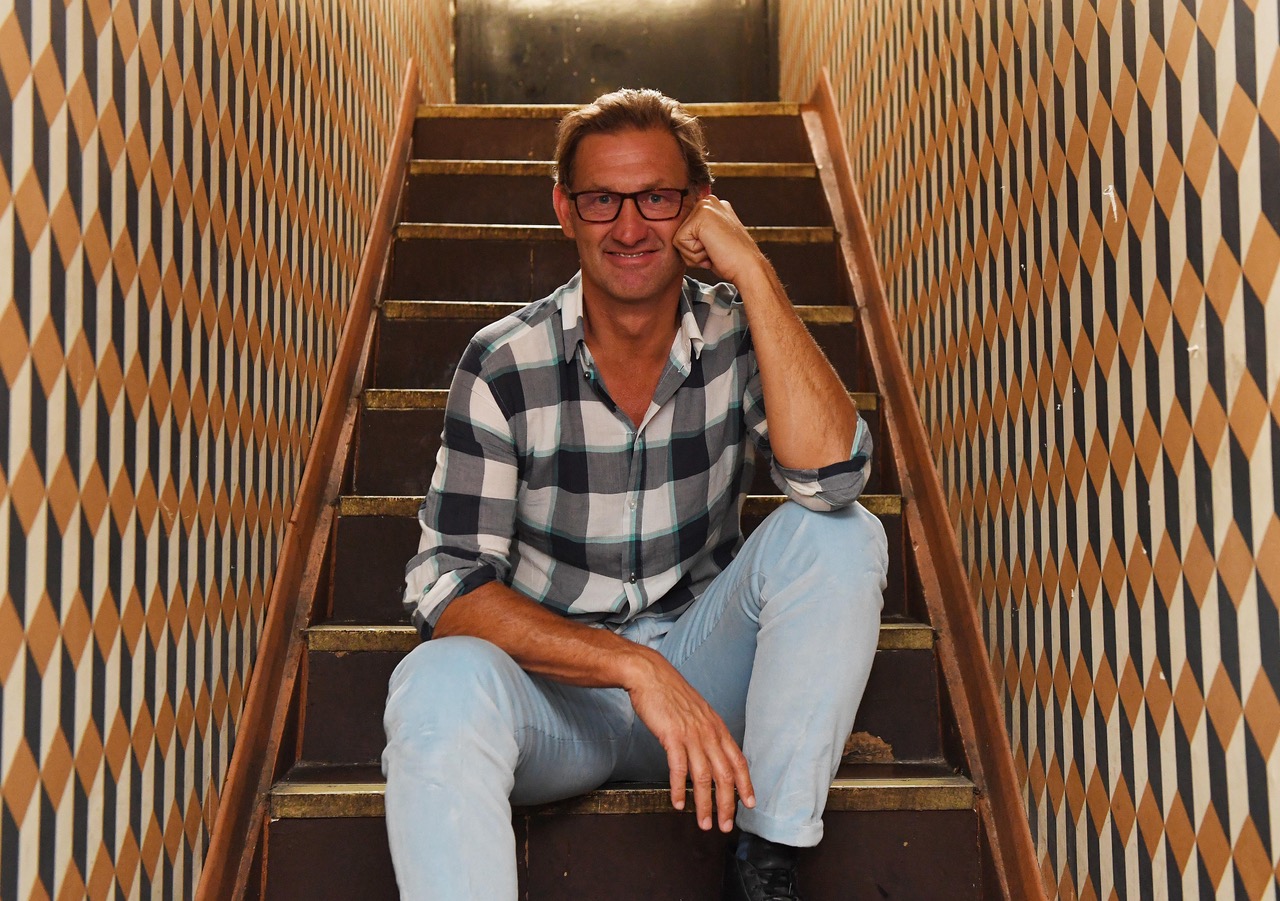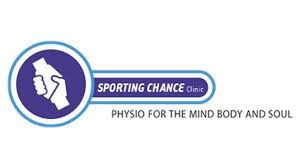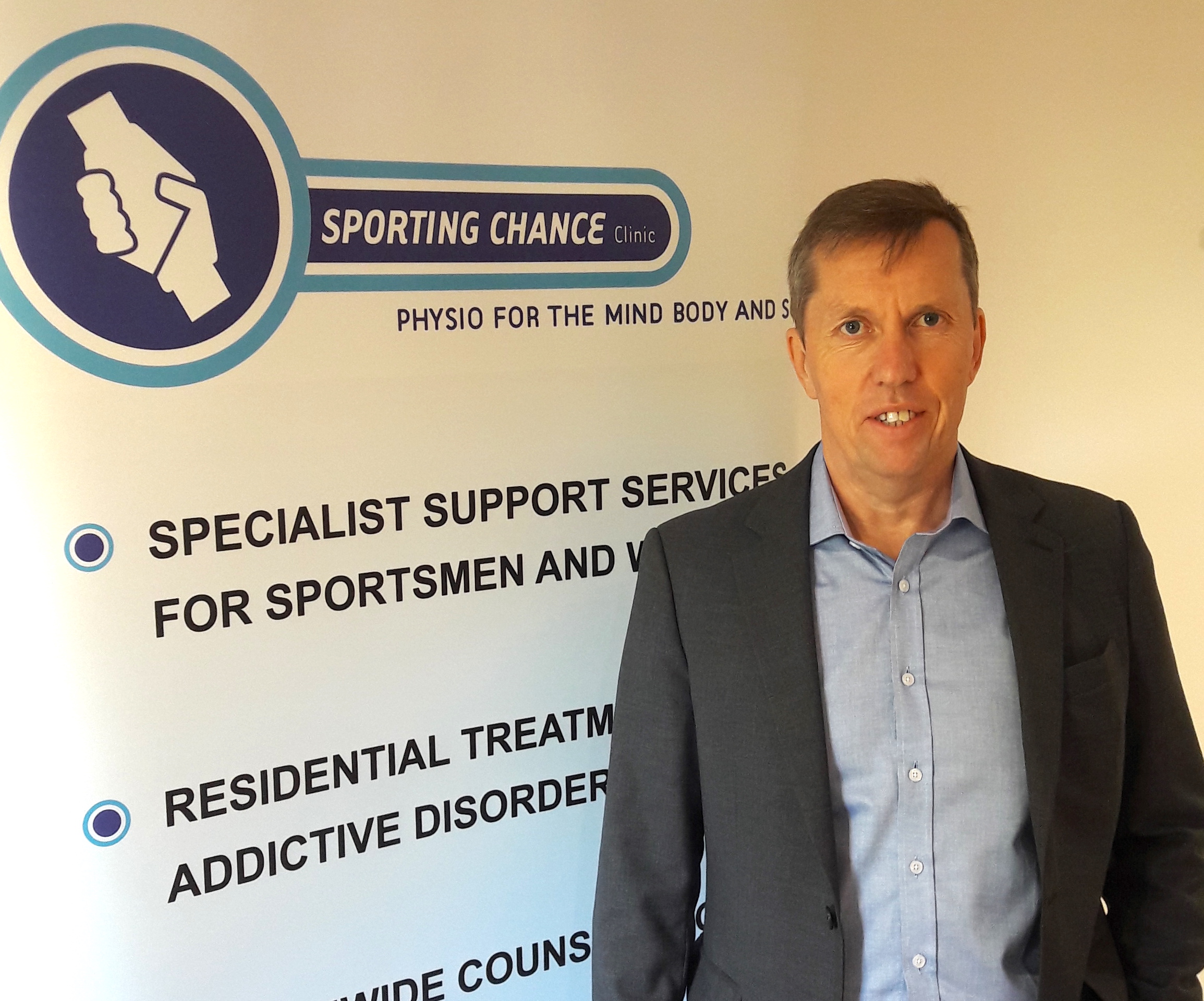Make a Donation
And help us make a difference.
We need your support to be able to continue enhancing the lives of people in communities wherever Rugby League is played.

To mark Mental Health Awareness Week, here’s an article from the Spring-Summer 2019 edition of our newsletter, One In, All In, detailing the support RL Cares provides to players through its links with Sporting Chance…
Then imagine not knowing whether you’ll be physically able to get in the car and drive home at the end of your shift because of the pain your job causes.
Think what it’s like being the most popular person in the supermarket as other shoppers ask for selfies and autographs with their new ‘best friend’ when you pop in for a box of cereal.
Then think what it must be like needing a pain-killing injection at breakfast just to get to your desk.
Imagine how the 25-year-old you would feel knowing you’re earning four times as much as your best mates from school.
Then imagine how the 35-year-old you would feel having to go to the same best mates asking for a job after your last employer made you redundant because you’re deemed to be too old.
Welcome to the world of the professional Rugby League player.
The stars of Super League and the Championship are our modern-day gladiators, young men who live the cliché of putting their bodies on the line for the entertainment of the fanatical public and television viewers on a weekly basis.
Young men who, whilst living their dream, are all too aware of the fleeting nature of their chosen career and who, throughout much of Rugby League’s history, have simply been expected to get on with and get over it.
Thankfully, we now live in more enlightened times and, led by the hard work of Rugby League Cares, the sport’s heroes can call on a widening network of services to help them when things go wrong.
One of the services utilised by RL Cares is Sporting Chance, a charity that has delivered counselling and other support to more than 400 Rugby League players since it linked with the sport in 2011.
 Sporting Chance was founded in 2000 by Tony Adams, the former Arsenal and England footballer who later this year will become President of the Rugby Football League.
Sporting Chance was founded in 2000 by Tony Adams, the former Arsenal and England footballer who later this year will become President of the Rugby Football League.
The organisation’s set-up costs were funded by the proceeds of Tony’s book, ‘Addicted’ which told of his long battle against alcohol dependency and the struggle he faced as a high-profile sportsman to tame his demons.
Over the last 19 years, Sporting Chance has gone on to make a dramatic difference to the lives of thousands of players from across a wide range of sport by recognising the unique pressures they face and shaping treatment strategies accordingly.
Sporting Chance runs the only residential clinic in the world for professional sportsmen and women with addiction disorders such as gambling, substance abuse and alcohol.
It has a national network of 200 therapists that enable players to access confidential therapy and other services to help with things like anxiety, depression, career changes and relationship problems.
“Tony found it difficult to get help as a footballer: he felt he couldn’t confide in anyone at Arsenal, not even the club doctor, because he was concerned it would change the way he was perceived,” explained Sporting Chance chief executive Colin Bland.
“He also felt conscious about walking into a GP surgery and seeking help because of his position as captain of Arsenal and England.
“It was a really difficult time for him, as you can imagine, and his experience helped shape the birth of Sporting Chance.”
Much has changed in the intervening two decades, although the problems athletes face largely remain the same.
“The whole landscape around the issues professional athletes face and the impact of poor mental health have changed,” added Colin.
“Some of the perception we see now from the general public were not there when Sporting Chance was established.
“We don’t know if players are more susceptible to suffering from mental health issues now than they were back then: what we do know is that people are more willing to seek help.
“It’s increasingly OK to talk about mental health.
“We find that the work other people in Rugby League, such as RL Cares, State of Mind and the Rugby Football League, have done has really paved the way for players to seek help when they need it.
“There is a healthy acceptance among Rugby League players that they need to talk about things that aren’t right and get help.
Sporting Chance works with between 750 and 800 individuals every year, including around 60 Rugby League players – 10 per cent of the 600 or so plying their trade in Super League and the Championships.
“Some of those will want just one-to-one sessions in a place where they are comfortable to talk about how they are feeling and what is going on in their lives,” added Colin.
“We also support retired players and, on occasion, have stepped in to lend our expertise to people involved in the amateur game following tragedies such as loss of life.”

So, are the problems endured by the stars of Super League the same as those faced by the country’s top footballers and cricketers?
“We find that different sports have different ‘flavours’: our experience in Rugby League is that it’s a very physical contact sport that leaves some players struggling to cope with the emotional impact of injury, in particular reoccurring injury,” said Colin.
“Rugby League players are more likely to suffer career-ending injuries than players in most other sports.”
Colin is keen to stress that the services offered by Sporting Chance are designed to complement what is available within the NHS, not that the NHS can always deliver to sportsmen when they need it most.
“We will never replace the NHS, we are not an emergency service and we do not have the capacity to become one,” he said.
“Many of the services provided by the NHS are incredibly wonderful. However, they have to cope with huge demand.
“There is an immediacy to our service. When a player reaches out, we can put a support network in place for them very quickly.
“Professional Rugby League players are a very unique client group.”
Sporting Chance will continue to play a key role in helping players recover when their dream turns into a nightmare, enabling them to get back to enjoying the game or better equipped to prepare for the next stage of their life.
RL Cares Head of Welfare Emma Rosewarne said: “Our relationship with Sporting Chance has been key to so much of what we’ve achieved over the last eight years. Sporting Chance has revolutionised the lives of so many players in that time.
“The expertise of Colin and his team is an invaluable resource, not just for players but for the club welfare staff who can always count on Sporting Chance for help and advice.”
And help us make a difference.
We need your support to be able to continue enhancing the lives of people in communities wherever Rugby League is played.